There is just something about the summers. They are relaxing, soothing, and bring out the fun in you. As a writer, you can do many fun things with your art this summer. Let me share forty so that you don’t need to search for ideas.
1. Watch The Sunrise Or Sunset
Have you ever tried writing while you stare at the magnificent aurora? If not, you’re missing out. If you have, well then you know that it’s worth doing again. Try to catch the sunrise or sunset at least twice a week and write as you watch the sky change colors. Don’t worry about what you’ll “make of it”, the process will be enriching in itself.
This is one of the sunsets I captured recently:

2. Learn To Cook
Cook your favorite meal for starters and then go on to exploring more complicated recipes. Doing different activities can spark the chords in your brain and give you more insight into your craft. Also, not to mention, more cooking means more snacks to munch on as you type away on your keyboard.
3. Freewrite
Freewriting is the technique of writing into your journal or documenting every thought that comes to your mind – without judgment, without inhibitions, and without restrictions. It helps you get into the flow of writing and swiftly move into more specific pieces of work. But it is also a very pleasurable activity in itself. And sometimes, something great will come out of your freewriting practice. Stick to it.
Here is a snapshot of one of Tim Ferriss’ morning pages:
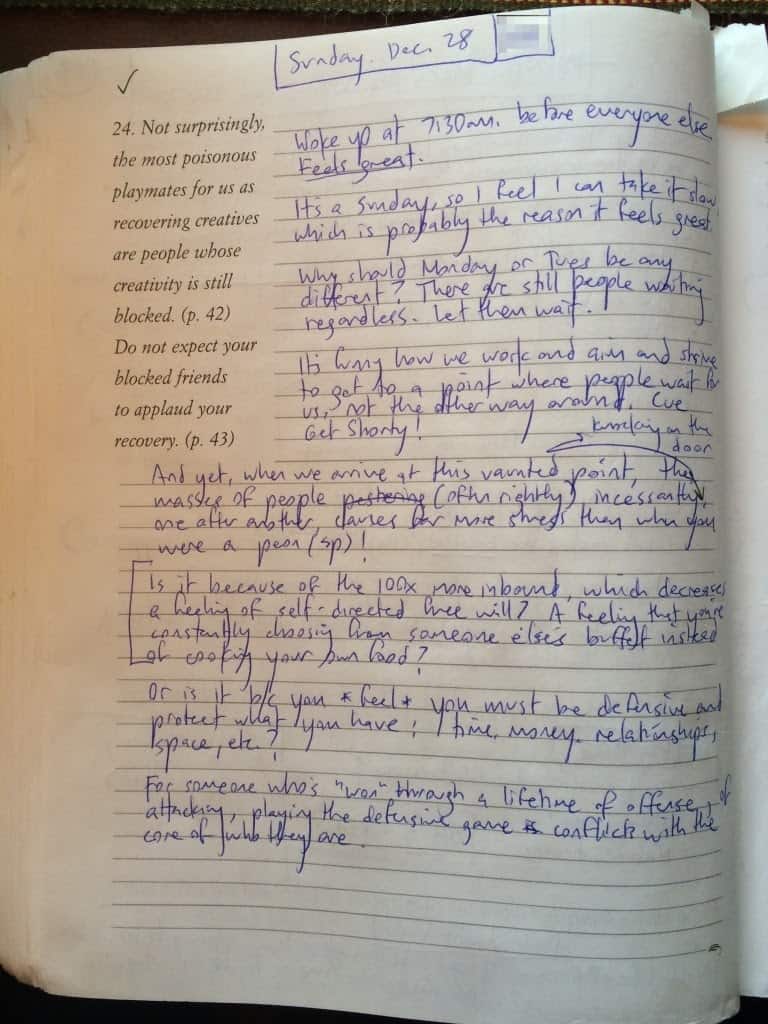
4. Catch Up On Your Netflix Watchlist
This is the time you can catch up on those missed shows and watch the movie adaptations of your favorite books. You can also watch something that might inspire you. It might give you an idea or push you to fill the gaps in some already existing piece of work.
5. Watch Cat Or Dog Videos On YouTube
Whether you’re a dog person or a cat person, watching their videos on YouTube is something you can do all summer without break. Feel a writer’s block kicking in and need a quick break? Watch cute puppies to distract yourself.
6. Plan a Virtual Date
It can be hard to bear the distance if you’re living away from your partner. Consider a virtual date session over Skype. Try to make it as creative and romantic as you can. If you’re single, you’ve always got your clan of friends you can virtually hang out with.
7. Read Fiction
Pick up a good piece of fiction that has always been an inspiration to you or the one you have been waiting to get your hands on for so long. Reading other writers’ work can help you in finding new forms of writing and get inspired. Try to read like a writer rather than a reader to find new ways of writing.
For me, the book I was waiting to read was 1984. And this summer, I finally got around to reading it:
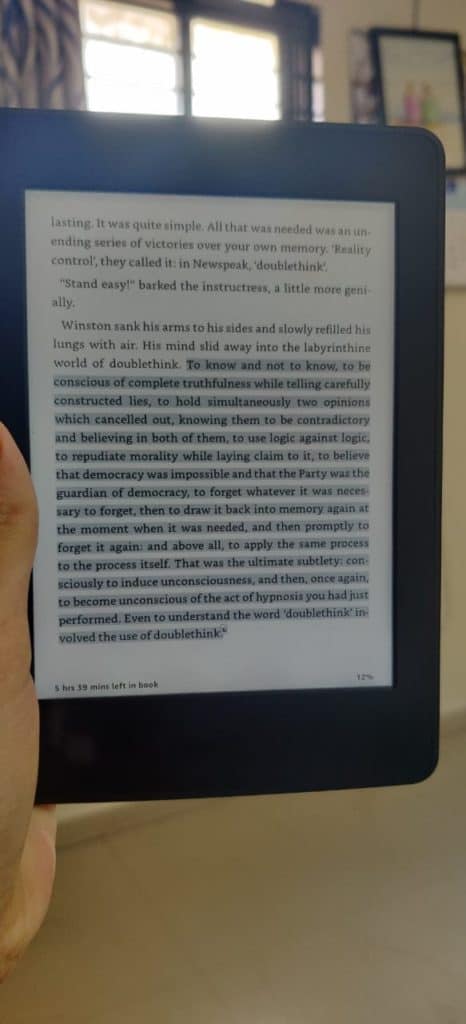
8. Read Non-Fiction
Nonfiction needs slightly different forms of skill sets and can help you reinvent your writing too. Pick up a biography or a history book – choose a subject that is of interest to you and get to reading.
I’ve always found spirituality and self-improvement books interesting, so this summer, I chose to read The Power of Now by Eckhart Tolle:
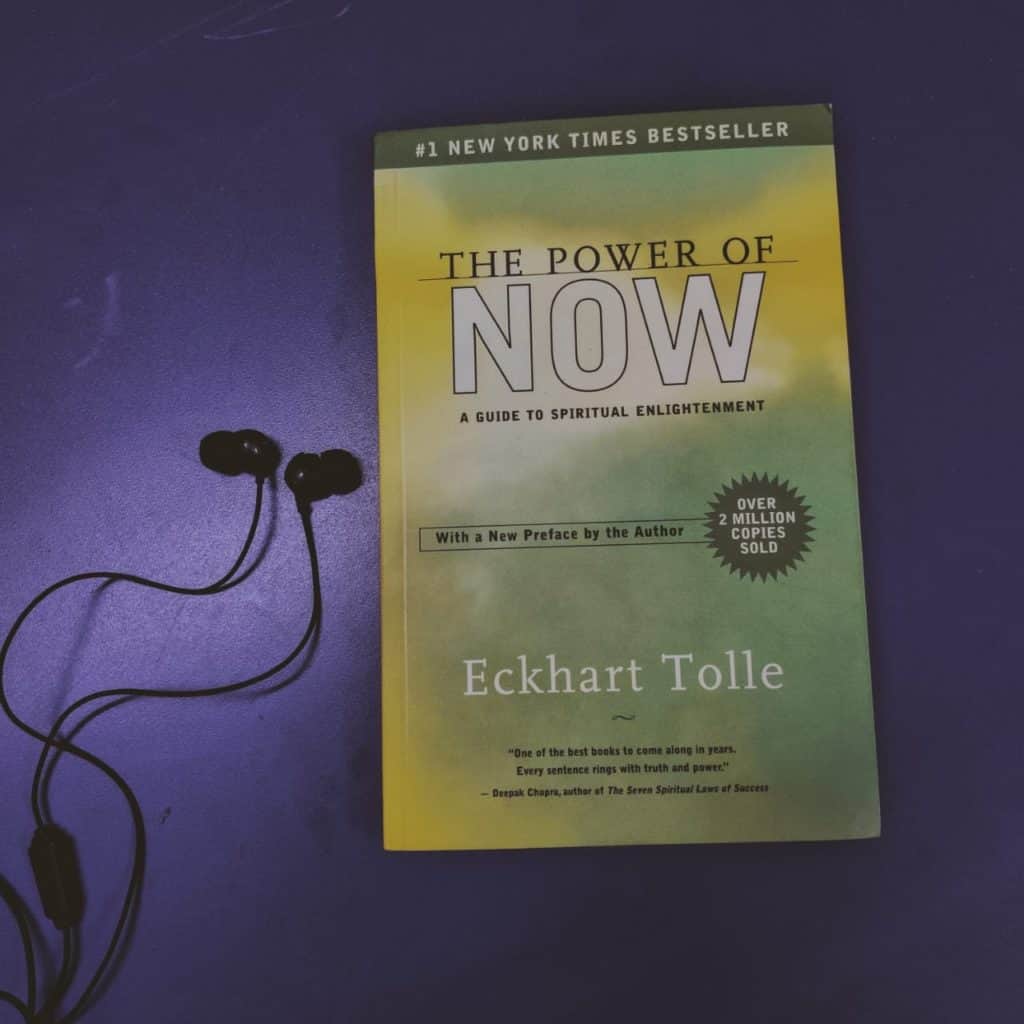
9. Exercise Regularly
Exercise can help you get your juices flowing and that fresh blood flow is sure to benefit your craft. Not to mention, you can finally get ready to acknowledge that summer body this year!
10. Play With Your Pet
If you have a pet, share your summer and your writing corner with them. Their fuzzy warmth can keep you elated and joyful as you write. Also, they’re a treat to watch and play with. It’s a wonderful way to recharge.
11. Experiment With Your Routine
All of us can get stuck in the same routine, day in and day out, until eventually, we get bored of it. Try switching the specific times that you used to do a particular thing and experiment with how that goes. Try to write at different times or in different places. Novelty is not only useful for creativity but also for getting into the flow state.
12. Practice Intermittent Fasting
This can be the one thing you experiment with within your routine. Try intermittent fasting or any other diet that pushes you out of your comfort zone. This can help you exercise your creativity in a different manner.
Not just that, intermittent fasting has been proven to promote weight loss, reduce “bad” cholesterol, prevent cancer, and improve brain health.
There are many ways to practice intermittent fasting with varied diet controls and meal times. Healthline has listed the 6 most popular ones.
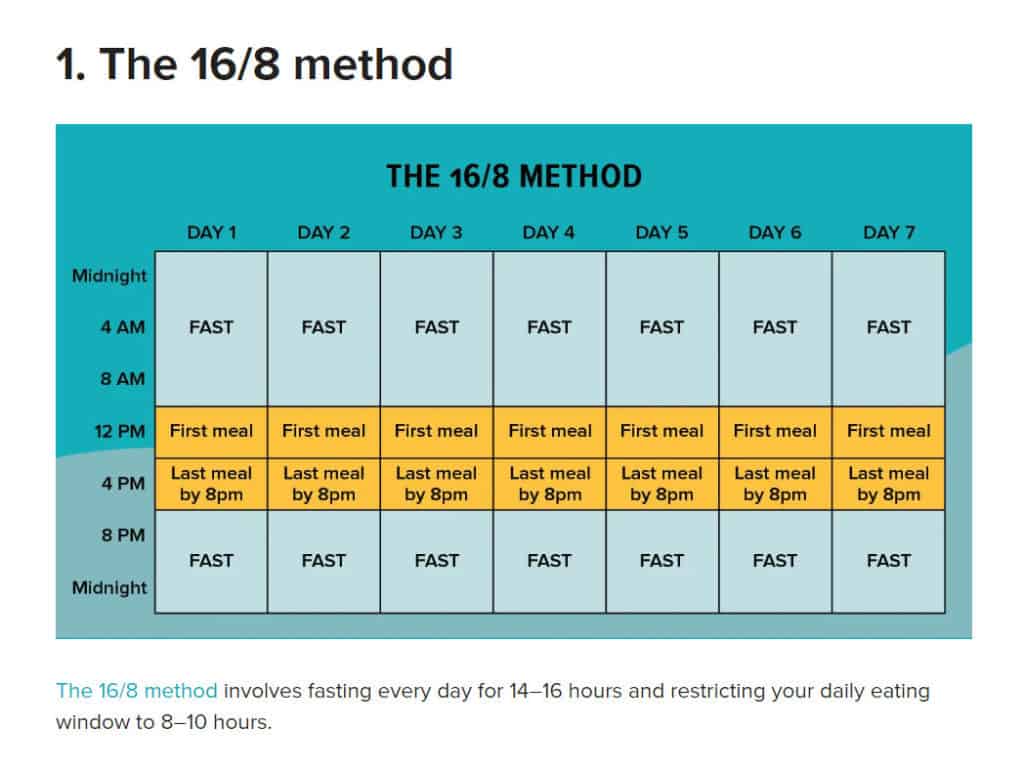
13. Get on a Zoom Call With a Fellow Writer
Other writers can be a source of inspiration and empathy. Discuss your struggles with your fellow writers, share your writing procedures, your process for choosing the correct words, and everything in between. Elise Dopson and Micheal Keenan agree!

14. Send an Email to Your Dream Publication
This is the right time. There is no time you’ll be “ready” for it. Do it now. What is the worst that could happen? There’s no harm in trying.
Aaron Orendorff’s philosophy of #LetsGetRejected got him published at Fast Company, Copyblogger, MarketingProfs, and Entrepreneur within 120 days. He also landed his first $20,000 three month client through using philosophy.
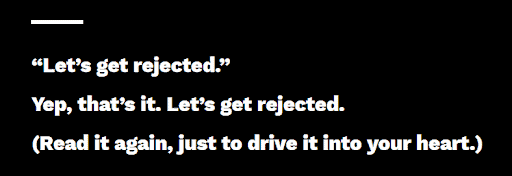
The key idea is to just go for it with the acceptance that you’ll be rejected. Yup. That’s it. Seriously, what’s the worst that could happen?

Say to yourself “Let’s get rejected” and then “So what?” before you hit send.
15. Send an Email to Your Favorite Author
All writers value fan-letters. Tell your favorite author how much they mean to you, how much they have helped you and inspired you, and you might just make their day better – and your own as well!
16. Get a Digital Detox
Try going off social media. Spend more time away from screens and gauge what that does to the illusion of time. See what that does to your creativity – does it enrich it or take away from it? Experimenting is the only way to find out.
17. Donate for a Cause
Being kind is not only beneficial to the beneficiary, but also to the benefactor. Bear a torch for someone else by donating to an organization you trust or for a cause that you believe in.
Effective altruism is one way to go about it. It is a social movement that helps you determine the most effective ways to benefit others using evidence and reasoning. If you are interested, you can find a few organizations employing effective altruism here.
18. Take a Walk in Your Neighborhood
Ah, the wonders of a solitary walk in the company of mother nature. But when you walk, just walk. No music, no podcasts. Be mindful. You just might notice something you’ve never paid attention to before.
19. Start a New Journal of Overheard Conversation
This is a technique that is employed by many poets and authors. Journal any interesting conversations you overheard or were a part of, or document the fragments that come into your head randomly. Work on these at the end of the day. Notice patterns of thought. Kate Greenstreet, the author of six collections of poetry including Case Sensitive (2006), calls her journal “The Epic”. You can follow in Kate’s steps and give yours a name too.
20. Do a Creative Task Daily
Decide on one task and do it with discipline, daily without fail. For example, look out the window daily and record what you see. Don’t worry about what will become of it, you can figure that out later. It can be a simple creative task that is pleasurable to do in itself.
21. Revisit Your Old Work
The work you have done in the past has an essence of its own. You might not relate to it anymore, or you might find it hard to edit without imposing your current perspectives on it. Give it time. Sit with your old work and let it reflect how you were back then. Edit the work, but only where you feel it can improve expression.
22. Start a New Form of Writing
If you’ve always been a poet, experiment with business writing. If you always wrote free verse poetry, experiment with a particular form. It will help you in enhancing your vocabulary and the variety of your writing.
23. Write One-Liner Poetry
Many poets like Dickinson, Whitman, and Ashbery have experimented with one-line poetry. You should too. Find some inspiration in already existing pieces of work and begin working on your own.
I wrote two one-liner poems at different times and then later combined them because they made sense together.
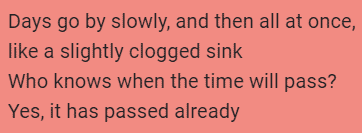
24. Experiment With New Writers
If there’s a particular author or genre you have resisted in the past, this is the time to experiment with them and to try and find something useful. It is good to get out of our comfort zones and try something that we never thought we would.
25. Give Blackout Poetry a Try
In this exercise, you take a piece of work in a newspaper or an article, or a press release, and try to form a poem using the words that it is composed of. Here’s an example of how you can make a newspaper blackout poetry:
It can be a constricting, but a very creatively pleasurable activity and you might just create something astonishing with words that aren’t even completely your choice.
Want something less constrictive?
Then try Ransom note poetry.
Choose 3-7 word phrases from articles, poems, reports, and the like, then combine them together to form a poem — it’ll look like a ransom note created from a newspaper. Artist and Blogger Jill Littlewood created hers from inflight magazines during a long haul. Here’s an example of a ransom poetry created by Priyal, a college student in Pune:
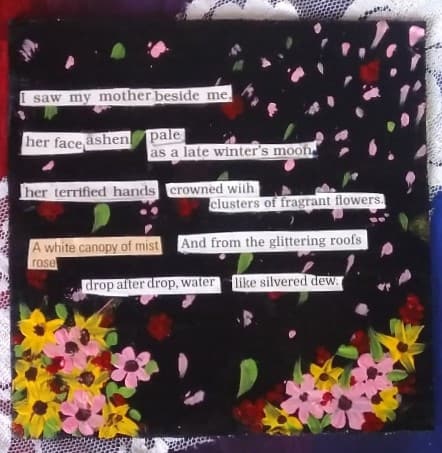
26. Write a Piece Where All Nouns Begin With the Same Alphabet
This can be challenging and will probably require extra focus. But it’s really fun! Try and see how it goes. You can experiment with the same thing using other parts of speech too.
27. Create a Word Cloud
A word cloud is simply the collection of words you find interesting, which may or may not be connected (in sounds or semantics or both), written on a page or document.

This is a word cloud of Charlotte Bronte’s Jane Eyre generated using ProWritingAid. You can use their tool to create one of your own. Create a constriction and try to work with these words. See where they lead you.
28. Try a New Food
Experiment with your taste buds by eating something you have never tasted. It works even better if you try a cuisine or a dish that you’ve disliked in the past.
29. Invoke Your Nostalgia
Nostalgia can be a great source of words. Write what comes to your mind when you relive or think of your past.
30. Try to Find Meaning in Something Simple
It is in the weirdest places that creativity gets a hold of us. Try to write in a mundane place you frequently visit and you might just be surprised at what you can come up with.
31. Grow a Plant
A plant is a pleasant thing to look at as you write. Growing it can be challenging if you’ve never done it before, but the joy of gardening is worth giving a shot.
32. Take a Technology Break
Throughout your day, schedule phone downtime. Do absolutely anything at this time that isn’t checking your phone. You can use Apple’s Downtime feature to make this a regular practice.
You don’t have to be rigorous and go all-in like a digital detox for this one. Just take a few hours off from your phone.
If this doesn’t suit you, you can block applications that squeeze most of your time and energy with app timers set on your phone. I follow this for WhatsApp, Instagram, and Netflix.
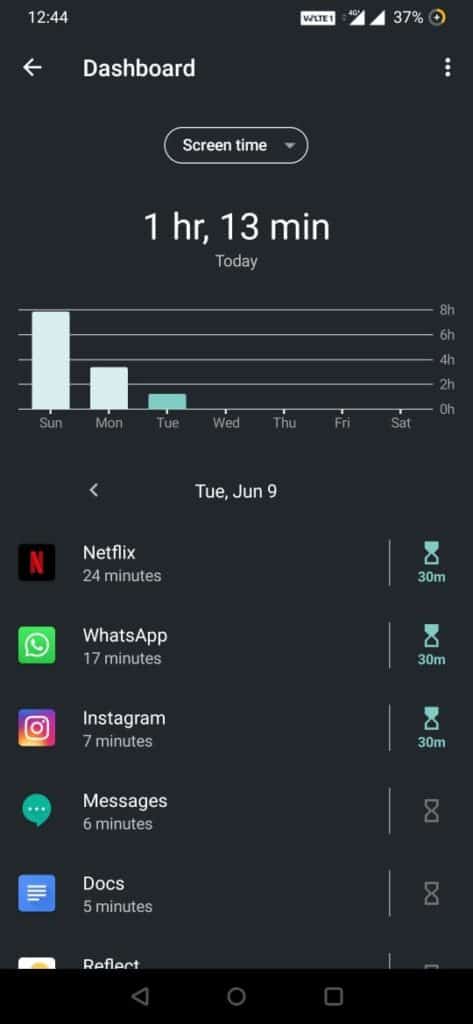
33. Porch Sit For The Afternoon
This is a fun exercise to do, especially in the summers. Try to be as idle as possible and to not check your phone constantly. Observe. Maybe you’ll get some writing done too.
34. Read An Author You Detest Or Are Averse To
If there is one author you don’t like, read them. If there are many, try to read as much as you can. Sit with an open mind.
You can also do an exercise wherein you follow authors from the opposite gender and with opposing viewpoints on social media, on their book or on their work. This can help you challenge your world-view and open yourself up to new perspectives.
I, for example, didn’t agree with everything author and blogger Mark Manson had to say. But, this summer I decided to give one of his famous books The Subtle Art of Not Giving a Fuck a try.
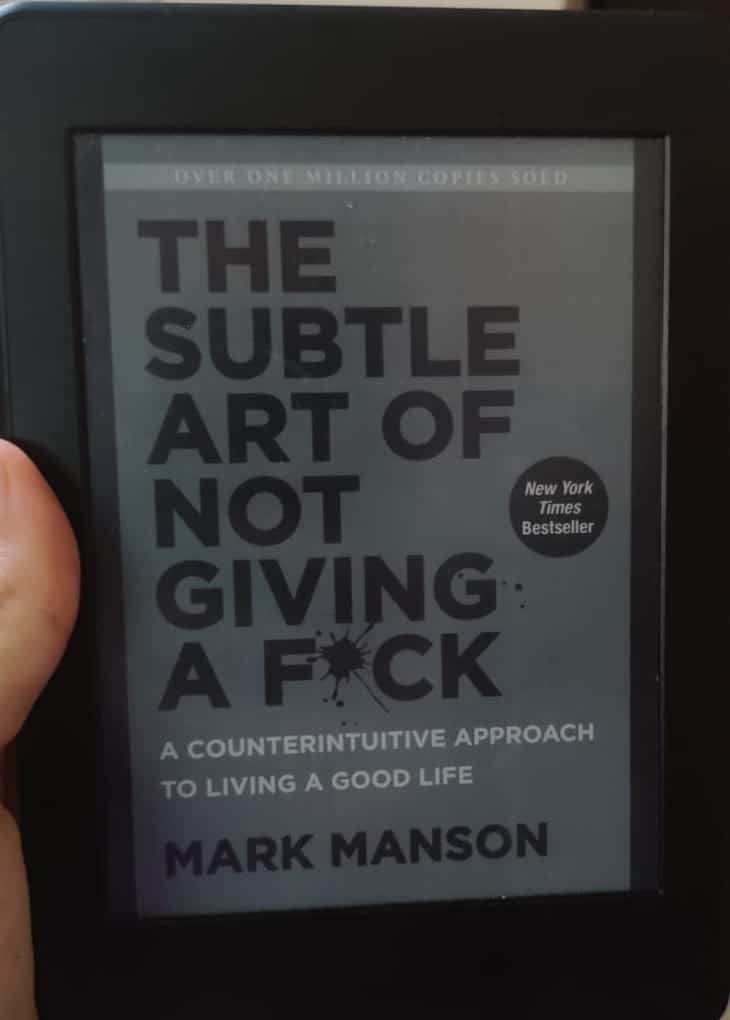
Honestly, I didn’t love everything about it. But it certainly was refreshing to read something so different from what I was used to. I was challenged by his perspectives and it opened me to new possibilities regarding my viewpoints and my writing. I took inspiration to write with more transparency and informality.
35. Derive Inspiration From Another Author
Many poets often experiment with adding their own twists to famous poems by their favorite poets. You can try the same. Lend some words to it and begin as you would go about it.
36. Write From the Perspective of a Teenager
It can be hard to see things with the haze of angst and frustration that accompanies teenagers, but it can be useful and creative to exercise a perspective you’ve never thought about before (or in a long time).
37. Experiment With Both Formal And Informal Language
This can diversify your vocabulary and make distinctions blurry.
38. Dig Into Drafts of Your Favorite Writers
Drafts of published works by your favorite authors might exist somewhere on the internet. Dig ‘em up. See what their first draft was like compared to the final published work. See their editing style.
39. Begin Your Book’s Outline
If you’ve wanted to author a book, now is the time. Begin with just the outline so it doesn’t get daunting. Break it into smaller projects so that it isn’t intimidating. And then, stick to it.
40. Research and Write on an Unknown Topic
It is easy to write about any subject matter that you’re an expert in. Try writing about something you have no idea about. Research. It can be fun and you get to learn something new!
Conclusion
Summers can be a jolly time to experiment with different things that can affect your writing. You can try to catch the sunset or sunrise once a day for inspiration. Or, you can read new authors and new genres that you haven’t tried before. Bonus points if you try to read a writer you detest.
Like many authors, you can experiment with freewriting and collecting fragments. You can experiment with writing one-liner poetry or using your fellow writer’s tips by connecting with them. If none of this suits you, you can go back and revise your old work.
Scheduling daily phone downtimes or weekly digital detoxes can also be an enriching experience.
Watch something inspiring. Or read something that motivates you to write yourself. If nothing works, watch a cute dog or cat video. That always does it for me.
Summers can be a great time to experiment with your craft and develop a regular writing practice. Hopefully, these ideas have made it easy for you to begin your summer writing. What is the one idea you love the most from this list?
